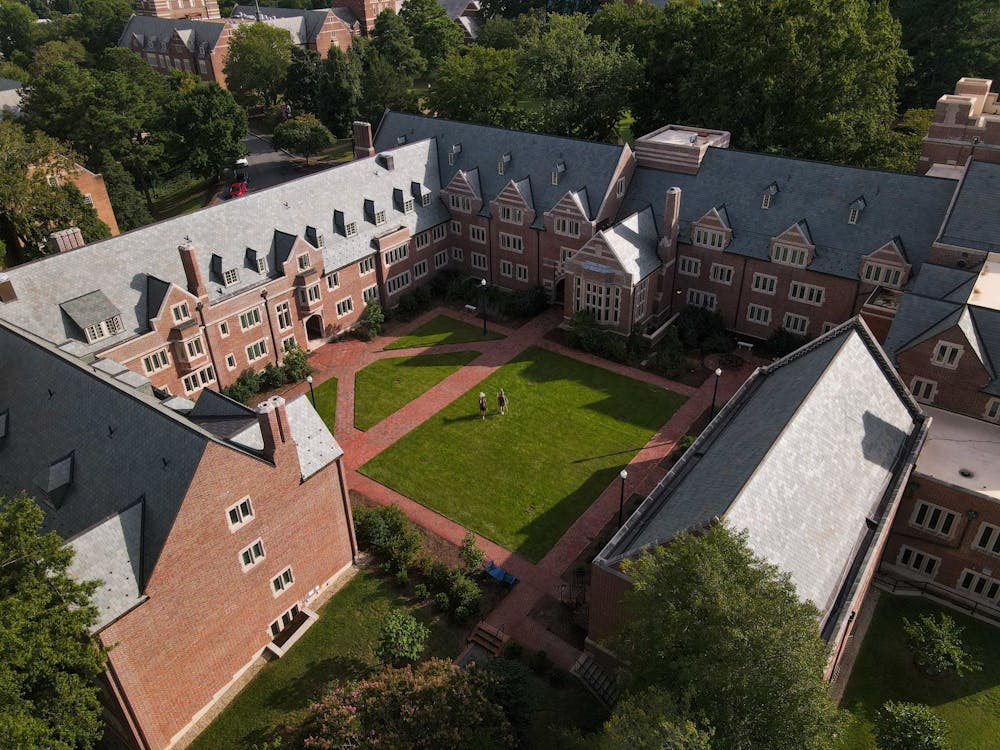Smaller departments and programs at the University of Richmond, including classical studies and Arabic studies, reflect on the challenges of sustaining themselves with small groupings of faculty.
Julie Laskaris, classical studies professor and department chair, is one of six current department faculty members and has been teaching classics at UR since 1996.
With its previous location of North Court being fully turned into a dorm, the classics department is in the process of moving to Ryland Hall, where there will be a new archaeology lab when the building is expected to re-open in the fall of 2021.
Laskaris said she did not feel as though funding was as much of an issue with smaller versus larger departments within arts and sciences. It is more so a matter of UR leaning toward business school and athletic interests, she said.
"Right now, the administration is saying that because of the pandemic, things are so uncertain that they're kind of putting the brakes on hiring and so on, but once we’re back to whatever the new normal is, I would certainly hope that we can convince the administration that they need to invest in all of arts and sciences more fully," Laskaris said. "I think, to me, the biggest competition is with the business school and with athletics. I think a lot of resources go there and that arts and sciences altogether gets shortchanged."
The classics department has discussed reshaping its curriculum and adding new courses, Laskaris said, but the revision plans have been put on hold because of the pandemic and the move to Ryland.
Although the classics department has most of its enrollment through general education credits, with multiple courses having 20-30 students, Laskaris said, the Arabic studies program is much smaller, but has a high rate of students who stick with it.
Martin Sulzer-Reichel, Arabic studies professor and director, founded the program in 2006 after there was a higher demand for it because of the Iraq War and increased funding of the ROTC program, he said. Prior to the creation of the Arabic studies program, Sulzer-Reichel worked at UR as a German professor.
"Our numbers currently have been relatively small, however, I'm very happy to say that the vast majority of the people who actually start with Arabic end up with at least a minor, and often a major as well," he said.
Arabic studies is a program within the languages, literatures and cultures department and currently has two faculty members.
"The language department gets the resources and the small languages can have a little bit of a hard time sometimes justifying [getting more funding] because our classes, by necessity, are small, especially the upper-level classes," Sulzer-Reichel said. "Which also leads, on occasion, to the fact that our major students end up finding that mid-level classes, for instance, are canceled because the enrollment is too small and then we have to kind of wiggle around."
"We have conducted searches via Zoom during the pandemic and are hiring tenure track/tenured faculty in psychology, political science, chemistry and math/data science," Patrice Rankin, dean of arts and sciences, wrote in an email statement to Collegian. "This includes a search for healthcare studies during the pandemic, which is still in process. In addition, we have hired excellent visiting faculty in theatre and dance, philosophy, Russian and German.”
Enjoy what you're reading?
Signup for our newsletter
The pandemic did not have a large effect on the program, aside from the cancellation of study abroad in fall 2020, Sulzer-Reichel said.
"For Arabic, where there is a lot of tension and a lot of prejudice, it's really important I think for our students to experience for themselves what the Middle East feels and tastes like," he said. "It usually is a requirement for our major and COVID obviously put a total wrench into that, so we're hoping that during the course of 2021 things will change."
Junior Olivia Jurcisin, who is a drill instructor for the language, originally decided to become an Arabic studies major because she wanted to be in the CIA at the time, she said.
"There are only three other Arabic majors in my year, so since we've taken every single class together we've all gotten really close and it's made it a lot easier for us to ask for help––there's not that fear of asking a stupid question in front of an audience," she said. "And I've been able to ask my professors for help with things outside of Arabic. It's just really personable and so comfortable. It makes it feel like there's always people on your side."
Contact news writer Meredith Moran at meredith.moran@richmond.edu.
Support independent student media
You can make a tax-deductible donation by clicking the button below, which takes you to our secure PayPal account. The page is set up to receive contributions in whatever amount you designate. We look forward to using the money we raise to further our mission of providing honest and accurate information to students, faculty, staff, alumni and others in the general public.
Donate Now


